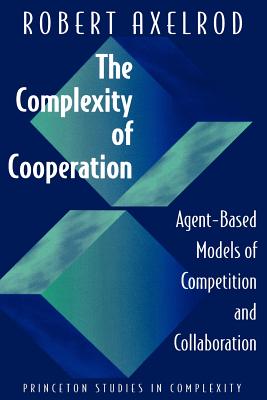商品描述
Political Science has traditionally employed empirical research and analytical resources to understand, explain and predict political phenomena. One of the long-standing criticisms against empirical modeling targets the static perspective provided by the model-invariant paradigm. In political science research, this issue has a particular relevance since political phenomena prove sophisticated degrees of context-dependency whose complexity could be hardly captured by traditional approaches. To cope with the complexity challenge, a new modeling paradigm was needed. This book is concerned with this challenge. Moreover, the book aims to reveal the power of computational modeling of political attitudes to reinforce the political methodology in facing two fundamental challenges: political culture modeling and polity modeling. The book argues that an artificial polity model as a powerful research instrument could hardly be effective without the political attitude and, by extension, the political culture computational and simulation modeling theory, experiments and practice.
This book:
- Summarizes the state of the art in computational modeling of political attitudes, with illustrations and examples featured throughout.
- Explores the different approaches to computational modeling and how the complexity requirements of political science should determine the direction of research and evaluation methods.
- Addresses the newly emerging discipline of computational political science.
- Discusses modeling paradigms, agent-based modeling and simulation, and complexity-based modeling.
- Discusses model classes in the fundamental areas of voting behavior and decision-making, collective action, ideology and partisanship, emergence of social uprisings and civil conflict, international relations, allocation of public resources, polity and institutional function, operation, development and reform, political attitude formation and change in democratic societies.
This book is ideal for students who need a conceptual and operational description of the political attitude computational modeling phases, goals and outcomes in order to understand how political attitudes could be computationally modeled and simulated. Researchers, Governmental and international policy experts will also benefit from this book.
商品描述(中文翻譯)
政治學傳統上運用實證研究和分析資源來理解、解釋和預測政治現象。對於實證建模的長期批評之一,針對的是模型不變範式所提供的靜態視角。在政治學研究中,這個問題尤其相關,因為政治現象顯示出複雜的情境依賴性,其複雜性幾乎無法被傳統方法捕捉。為了應對這一複雜性挑戰,需要一種新的建模範式。本書正是針對這一挑戰。此外,本書旨在揭示計算建模在政治態度中的力量,以加強政治方法論,面對兩個基本挑戰:政治文化建模和政治體建模。本書主張,作為一種強大的研究工具,人工政治體模型在沒有政治態度以及進一步的政治文化計算和模擬建模理論、實驗和實踐的情況下,幾乎無法有效。
本書:
- 總結了政治態度計算建模的最新進展,並在全書中提供插圖和範例。
- 探討了計算建模的不同方法,以及政治學的複雜性要求應如何決定研究和評估方法的方向。
- 討論了新興的計算政治學學科。
- 討論了建模範式、基於代理的建模和模擬,以及基於複雜性的建模。
- 討論了投票行為和決策、集體行動、意識形態和黨派性、社會動亂和內部衝突的出現、國際關係、公共資源分配、政治體和制度功能、運作、發展和改革、以及民主社會中政治態度的形成和變化等基本領域的模型類別。
本書非常適合需要對政治態度計算建模階段、目標和結果進行概念性和操作性描述的學生,以便理解政治態度如何被計算建模和模擬。研究人員、政府和國際政策專家也將從本書中受益。


















